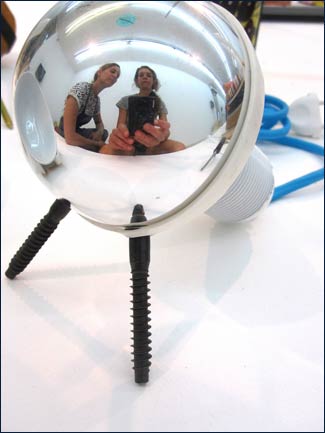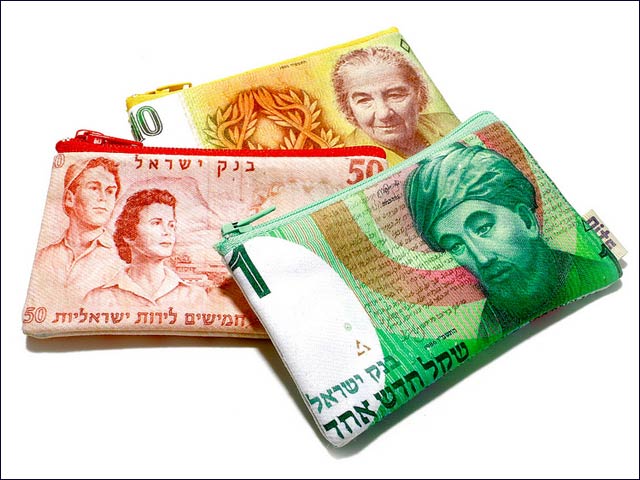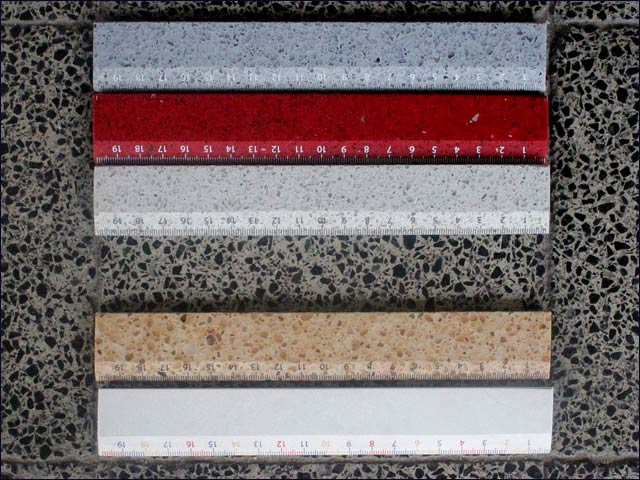By Avigayil Kadesh
When the creative director of Beijing Design Week came to Israel last summer and visited the Design Museum in Holon, industrial design duo Liora Rosin and Nitsan Debbi were all ready with an elevator pitch for a project they wanted to curate in the Chinese show.
He liked their idea, and so the two went off to Beijing over the fall Jewish holidays to curate “How To... ” – a creative exploration of how YouTube has become an archive and instructional medium for lost or weird skills such as making a fishing lure by hand or sharpening a knife with a plate.
“As designers and instructors at Bezalel, we are curious about how knowledge is accumulated and passed on from masters to students and from new masters on YouTube, even if it’s an 89-year-old teaching a specific kind of knitting,” says Rosin.
They chose 14 YouTube videos and asked eight Israeli and six Chinese designers to create an object and upload a clip of their own making that demonstrated something they’d learned from the original video.
“We want to take this concept to other countries and work with other designers,” says Debbi. “This was the first step.”

The artists took this photo of themselves The 20-something master’s degree graduates of Jerusalem’s prestigious Bezalel Academy of Art and Design work together out of their Tel Aviv workspace, Studio Bet-Melacha, opened in 2011. The name of the studio translates to “House of Creative Work.”
Debbi had earned her bachelor’s degree at the Holon Institute of Technology and spent six months at the Köln International School of Design in Germany. Rosin got her first degree at the Eindhoven Design Academy in Holland.
They met and began collaborating on award-winning projects during a two-year internship program at Keter, an Israeli manufacturer of home and garden products sold in 90 countries. The program provided a full scholarship for a master’s degree in industrial design at Bezalel, where they now both teach part time.
If you like what you’re doing, you don’t notice it’s work
“We were working together already, so it was very organic to stay together once we’d figured out how to make money from what we like doing,” says Rosin. “Getting the space was the only actual decision we made, and the rest just happened.”

Whimsical wallets with images of Israeli currency The women claim that ideas for their projects also “just happen.” Some of their products include porcelain easy-to-fill saltshakers, stainless steel water cups and carafes; wallets made with images of Israeli currency and rulers fashioned from scraps of terrazzo floor tile.
“As long as we keep riding in a car we’ll do fine,” Debbi says, explaining that they brainstorm while stuck in traffic jams.
Enjoying what they do, however, does not mean it isn’t serious business. Studio Bet-Melacha has been winning commissions in design research and trend forecasting from major companies including Osem/Nestle Foods.
“One of the benefits of doing what you like is you don’t notice you’re working,” says Rosin with a smile.
Their creations are available at three Tel Aviv retailers: the gift shops of the Tel Aviv Museum of Art and the Bauhaus Center, as well as the Asufa design store that promotes young Israeli artists.
Debbi, who got a lot of attention for her student project making “baked electronics” – clocks, radios and a flashlight whose original casings she had replaced with bread – explains the origins of the terrazzo rulers.
“Israelis are always measuring by tiles, so we thought of making a ruler from tiles,” Debbi explains. “It’s a typically Israeli material we are totally in love with.”

Rulers made from terrazzo tile During 2011-2012, the partners not only went to Beijing Design Week but also took second prize in a lighting competition and participated in the Venice Architecture Biennale, the Milan Furniture Design Fair and Fashion.Art.Design, Tel Aviv. Their exhibitions over that year included “Plug In” at the Design Space Gallery in Tel Aviv; “Playing with Food” at Beit-Meirov Gallery in Holon; and “Reprodukt3” at the Institute of Industrial Design in Warsaw, Poland.